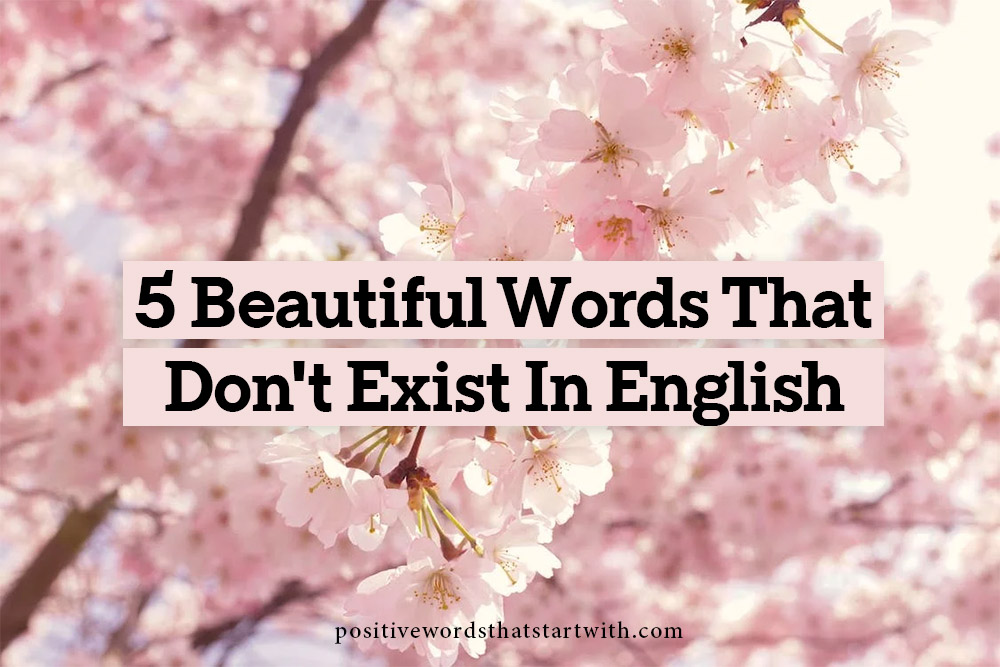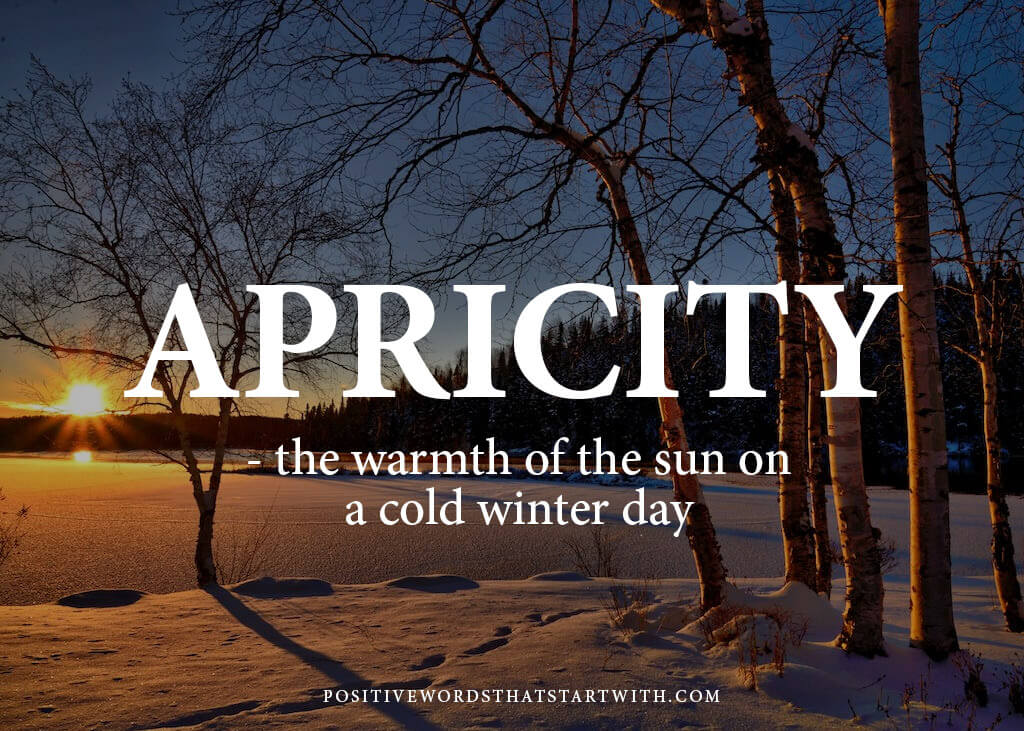Language is a beautiful and intricate thing, with words that can express emotions, sensations, and experiences in ways that sometimes feel impossible to translate. From the rolling R’s of Spanish to the tonal intricacies of Mandarin, every language holds a unique beauty that can be difficult to capture in translation. This is especially true for certain words that have no direct equivalent in other languages.

Today, we’ll explore five such words from around the world that encapsulate complex emotions and concepts in just a few syllables and that do not exist in English. These untranslatable treasures offer a glimpse into the richness and diversity of human experience and remind us that sometimes the most profound truths are the ones that can’t be put into words.
Some of the beautiful words that don’t exist in English include Schadenfreude (German), Hygge (Danish), Saudade (Portuguese), Hiraeth (Welsh), Komorebi (Japanese), or Fika (Swedish).
Schadenfreude (German)
Have you ever felt a sense of pleasure at someone else’s misfortune? Maybe you were secretly pleased when your rival at work got passed over for a promotion, or you felt a little smug when your ex’s new relationship hit a snag. If so, you’ve experienced schadenfreude, a German word that describes the joy one feels at the suffering or misfortune of others. It’s not a pleasant emotion, but it’s a common one, and the Germans have a word for it that perfectly captures its complexity.
Schadenfreude is a prime example of how certain words can express a concept that’s difficult to put into words in other languages. There’s no direct English equivalent for schadenfreude, although the phrase “taking pleasure in someone else’s pain” comes close. But that phrase doesn’t quite capture the nuance and complexity of schadenfreude, which can range from a fleeting feeling of satisfaction to a more intense and sustained delight in someone else’s downfall.
It’s worth noting, however, that schadenfreude is not necessarily a healthy emotion. Studies have shown that people who experience schadenfreude tend to be less empathetic and more prone to feelings of envy and resentment. Although it may seem appealing to occasionally take pleasure in the misfortune of others, it is crucial to acknowledge this behavior and strive to promote more constructive feelings.
Saudade (Portuguese)
Saudade is a Portuguese word that’s difficult to translate into English, but it’s often described as a feeling of melancholic nostalgia or longing for something that’s gone. It’s a complex emotion that can encompass a range of feelings, from sadness to nostalgia to a sense of loss or yearning. The origin of the term can be traced back to the musical and poetic heritage of Portugal, particularly the fado music genre in Lisbon, known for its themes of nostalgia and melancholy. It is frequently linked to this specific style of music.
The beautiful word “saudade” represents the feeling of grief and desire that humans often encounter, and it serves as a cue that, even when undergoing anguish and sorrow, there is still a possibility for splendor and significance. It’s a word that can be difficult to grasp for those who haven’t experienced it fully, but for those who have, it’s a powerful reminder of the depth and complexity of human emotion.
Interestingly, there are similar words in other languages that capture some of the same feelings as saudade. The Galician word morriña, for example, is similar to saudade in that it describes a sense of longing and melancholy, while the Welsh word hiraeth is often used to describe a feeling of homesickness or longing for a place that no longer exists.
Hiraeth (Welsh)
Hiraeth is a Welsh word that’s difficult to translate into English, but it’s often described as a longing for a place or time that no longer exists. It’s a word that speaks to the human experience of nostalgia and loss, and it’s often associated with the landscape and culture of Wales.
Hiraeth is a word that captures the beauty and complexity of human emotion, and it’s a reminder that during times of suffering and grief, it is possible to experience a feeling of unity and significance. It’s a word that’s deeply rooted in Welsh culture, and it’s often used to describe the longing that Welsh people feel for their homeland, even when they’re far away.
Interestingly, there are similar words in other languages that capture some of the same feelings as hiraeth. The Portuguese word saudade, for example, is similar to hiraeth in that it describes a sense of longing and nostalgia, while the German word sehnsucht is often used to describe a feeling of deep yearning or longing for something that’s out of reach.
Komorebi (Japanese)

Komorebi is a Japanese word that’s difficult to translate into English, but it’s often described as the dappled light that filters through the leaves of trees. It’s a word that captures the beauty and tranquility of nature, and it’s often associated with the Japanese tradition of forest bathing, which involves spending time in nature to improve one’s physical and mental health.
The term “Komorebi” reflects the feeling of amazement and admiration that humans experience, and it serves as a reminder that despite our fast-paced and chaotic lifestyles, nature offers us serenity and magnificence that we can appreciate. It’s a word that’s deeply rooted in Japanese culture, and it’s often used to describe the way that nature can heal and restore us.
Interestingly, there are similar words in other languages that capture some of the same feelings as komorebi. The Norwegian word koselig, for example, is similar to komorebi in that it describes a sense of coziness and comfort, while the Swedish word lagom is often used to describe a sense of balance and harmony.
Hygge (Danish)
Hygge is a Danish word that’s difficult to translate into English, but it’s often described as a feeling of coziness, warmth, and contentment. It’s a word that captures the beauty and simplicity of everyday life, and it’s often associated with the Danish tradition of enjoying life’s simple pleasures, like enjoying the company of loved ones, sipping warm cocoa near a fireplace, or snuggling up with an interesting read during a rainy day are some delightful activities.
Hygge is a term that represents the human feeling of ease and happiness, and it serves as a prompt that amidst life’s difficulties, one can encounter instances of tranquility and satisfaction. It’s a word that’s deeply rooted in Danish culture, and it’s often used to describe the way that Danes prioritize their well-being and quality of life.
Interestingly, there are similar words in other languages that capture some of the same feelings as hygge. The Swedish word fika, for example, is similar to hygge in that it describes a cozy and convivial coffee break with friends or colleagues, while the Dutch word gezellig is often used to describe a sense of warmth and coziness in social situations.


